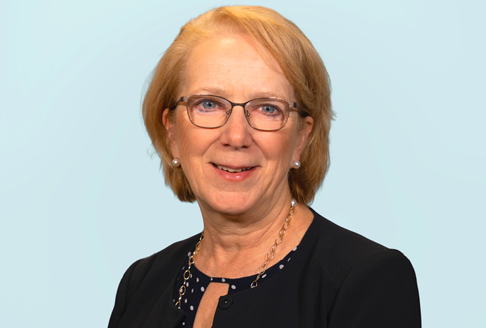Geraldine Lannon appointed as new Victorian Director of ACCPA
- 22 Mar 2023

We are delighted to announce the appointment of our Chief Executive Officer, Geraldine Lannon, as a Director of the Aged and Community Care Providers Association (ACCPA). Geraldine is filling a casual vacancy as a Victorian Director.
ACCPA sent out the following announcement to its members informing them of Geraldine’s appointment:
NEW ACCPA VICTORIAN DIRECTOR
The ACCPA Board of Directors is delighted to announce the appointment of Geraldine Lannon as a Director of ACCPA, filling a casual vacancy in the position of Victorian Director.
As a Board appointed position, the ACCPA Board undertook a transparent and robust process for the appointment, commencing with an open call for nominations from our members in early February 2023. The position attracted a large number of high calibre candidates and we thank all of the nominees for their interest and efforts.
Geraldine is the Chief Executive Officer of Baptcare, a leading, faith-based, not for profit organisation providing services in residential care, retirement living, home care, disability, seniors’ housing and a number of other areas across Victoria.
Geraldine brings to the ACCPA Board over 26 years’ executive leadership experience in aged care, public health and community services. She has served on a number of boards including a large, not-for-profit aged care provider in Western Australia and the Health Round Table, which provides data analytics to hospitals across Australia and New Zealand. Amongst her broad range of relevant skills, Geraldine’s extensive government relations, digital, change management and strategy development experience particularly recommended her as a worthy addition to the ACCPA Board.
Geraldine holds clinical, management and governance qualifications, having initially qualified as a registered nurse and including a Master of Business Administration and qualifications in safety and quality, project management and emergency management. She is also a Graduate of the Australian Institute of Company Directors. Geraldine has received a Western Australian Health Award for Effectiveness Through Clinical Engagement and has also been a finalist in the Telstra Women’s Business Awards.
The term of appointment for this Director position concludes at ACCPA’s Annual General Meeting in 2025.
We look forward to welcoming Geraldine to the ACCPA Board at our upcoming Strategy Workshop in early April 2023.
Community news
-

Team Spotlight: Home Start, Mother Goose and Supported Playgroup Team in Bendigo
Baptcare runs the Home-Start, Supported Playgroup, and Parent-Child Mother Goose Programs in Bendigo. Jane, Home-Start Team Leader; Angie, Group Facilitator, Mother Goose Program and Supported Playgroup; and Jess, Group Facilitator, Mother Goose Program and Supported Playgroup, are our wonderful team members, dedicated to helping families and connecting them with strong support within the local Bendigo and Macedon Ranges communities. Keep reading to learn more about these exceptional employees, their work, and why they love what they do.
- 30 Jan 2026
-

Staff Spotlight | Lois Yamuta – Project Lead, Living Well Together
What inspired you to work in aged care and how did you come to lead the ‘Living Well Together’ program? My career in aged care started in New Zealand. I was studying Healthcare Management, where I was also introduced to aged care nursing, and the rest is history!
- 28 Jan 2026
-

Staff Spotlight | Belinda Evans – Baptcare Scholarship Winner
At Baptcare, we believe that investing in our people is the key to our shared success. That’s why we’re proud to offer the Baptcare Scholarship Program, providing up to $2,500 to support permanent employees, both full-time and part-time, in pursuing further education and professional growth.
- 27 Jan 2026
